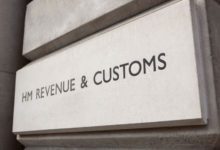As the self-assessment tax deadline looms, here’s what the new HMRC Customer Charter means for you and your clients

HMRC has long has a customer charter, but its focus and terminology has always been on “expectations” and “obligations”, taking a very hard-line approach to the behaviours HMRC expect you to exhibit and the standards that it will offer in return. Following an extensive seven-month consultation in which stakeholders including The Institute of Financial Accountants (IFA) submitted evidence, HMRC has now published its brand-new customer charter, a marked improvement on the version of old. The new charter has been specifically designed to align with HMRC’s vision for the modern tax system, but this iteration also incorporates many of the stakeholder recommendations, including better suiting the needs of accountants and their clients, more clarity around HMRC’s service commitments, inclusion of accountants as authorised representatives, guidance for additional support for those that need it and, details of how HMRC will monitor and report on performance against the charter.
There are too many changes to detail in full in this article, and we encourage you to familiarise yourself with the document to best support your clients. However, perhaps the two most fundamental changes are to the language and terminology, and the recognition of personal circumstance for the first time:
- Revamped language: where the previous version used language that was at best dictatorial, the new version embraces language that is much more collaborative, open, and inclusive. It places emphasis on “improving the customer experience” and “mutual respect”, moving away from the previous focus on “expectations” and “obligations”. This might not seem like a big development, but it represents HMRC’s hopes and vision for a modern tax system and is hopefully representative of a wider change in how HMRC work with businesses.
- Personal circumstances: one of the most common criticisms of the UK tax system and HMRC has been the ‘one-size’ approach to its dealings with businesses and individuals. That’s why the inclusion of taxpayers’ personal circumstances is a welcome change. With its new charter, HMRC has set out how they will take personal situations into account and in turn what extra support individuals can expect to receive from HMRC. This is of course not a ‘dog ate my homework’ situation but is of particular importance to those who may be struggling, or who require additional assistance, for example, due to mental health challenges, learning difficulties, those who are vulnerable, those with a language barrier, those with age-related difficulties, and/or those who are struggling financially. Example support includes advisers to help set up digital accounts or support with paper returns, new methods for contacting HMRC, and the ability to appoint someone to talk to HMRC on their behalf as and when they need support. This is a first for the government behemoth, and should offer reassurance to those who have found HMRC particularly immovable in the past.
It is not just a renewed vision and culture we can expect of HMRC either. The department has also become much more explicit about its own accountability. As well as setting out how it will measure its own performance and report on it, HMRC has also provided a much more explicit list of standards of behaviour that it will exhibit. The charter now includes seven things that HMRC will exhibit:
- Getting things right – giving you accurate, consistent, and clear information
- Making things easy – services that are designed around what you need to do, and are accessible, easy, and quick to use, minimising the cost to you
- Being responsive – answering questions and resolving things first time or as quickly as possible
- Treating you fairly – HMRC will work with you to get tax right and assume you’re telling the truth, unless they have good reason to think you’re not
- Being aware of your personal situation – HMRC will listen and be mindful of your personal situation. Extra support will be provided if it is needed
- Recognising that someone can represent you – HMRC will work with accountants, friends or relatives that have been authorised to represent you. They’ll only deal with them if you have authorised them to represent you. More information on granting authorisation is available here.
- Keeping your data secure – data held by HMRC will be treated privately, confidentially, and used fairly and lawfully.
Individuals and their representatives are being encouraged to provide feedback to HMRC on its service standards and report instances where the service standards haven’t been met, which can be done through email.
At the IFA, we are delighted with the changes and improvements, many of which we included in our own written response to the consultation. However, the major flaw we must all work together to overcome is that despite its aspirations, the charter is still reliant on awareness in order to fundamentally improve the relationship between HMRC and the individual. Many individuals and businesses will be unaware that the charter exists in the first place, let alone that it has undergone significant change, leaving them vulnerable and without full awareness of their rights. That’s why we’re encouraging accountants to get clued up on what the changes mean, and how they can be used to support and help educate clients on what is and isn’t appropriate behaviour for HMRC. It will also help that accountants or ‘authorised representatives’ are being properly recognised and will therefore be better able to hold HMRC accountable on behalf of clients.
Hopefully, the new charter will serve to improve the relationship between taxpayers and HMRC, and will align with a simpler, less onerous, and more modern tax system. We are looking forward to seeing how the charter evolves in the coming months, and in the meantime, you can read the new charter in full on the government website.
This article has been provided by Anne Davis of The Institute of Financial Accountants. More information about the professional accountancy body can be found at www.ifa.org.uk.









